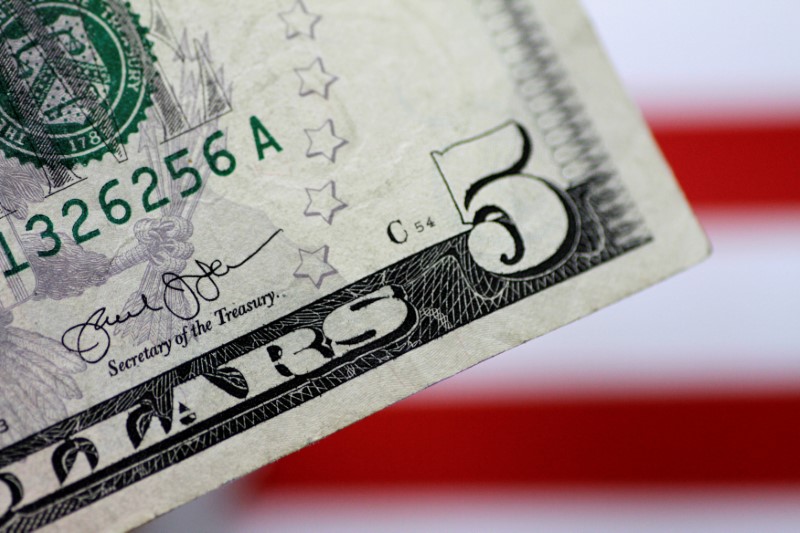Investing.com - The U.S. dollar lost ground against the other major currencies on Monday as comments from the Federal Reserve eased concerns over its policy tightening and the start of a fresh round of U.S.-China trade talks boosted risk appetite.
Two days of trade talks kicked off in Beijing on Monday following the announcement Friday of new stimulus measures by the Chinese government, aimed at addressing a sharp economic slowdown.
Investors hope that Washington and Beijing can strike a comprehensive trade deal before the end of a 90 day truce in the trade war.
The two sides have until March 1 to make a deal, after which U.S. President Donald Trump has pledged to ramp up tariffs to 25%, from 10%, on $200 billion worth of Chinese imports.
The U.S. dollar index, which measures the greenback’s strength against a basket of six major currencies, was down 0.29% to 95.47 by 03:19 AM ET (08:19 AM GMT).
The dollar was pressured lower after Fed Chairman Jerome Powell suggested that the central bank would be patient on monetary policy this year.
On Friday, Powell said the Fed is not on a preset path of interest rate hikes and that it will be sensitive to the downside risks markets are pricing in.
Despite Friday's stronger than expected U.S. December jobs data, many analysts believe the world's largest economy is losing momentum and further rate hikes are the last thing it needs. Powell's comments that the central bank is "prepared to shift the stance of policy" boosted investor sentiment and sent U.S. stocks soaring on Friday.
The dollar outperformed other currencies in 2018 due to the Fed being the only major central bank to hike rates. If the Fed holds rates in 2019, analysts see slim chances of further greenback appreciation.
U.S. 2-year and 10-year Treasury yields fell sharply over the last couple of weeks indicating that bond traders see little chance of the Fed raising rates this year on the increased likelihood of a growth slowdown in the world's largest economy.
However, few analysts still see scope for the Fed to raise rates in 2019.
"Last Friday's strong US jobs data suggested that recession fears were overblown," said Philip Wee, currency strategist at DBS in a note.
"With the Fed only looking to pause rate hikes, the market is likely to have gotten ahead of itself in pushing at the U.S. 2-year and 10-year bond yields below the Fed Funds Rate last week," he added.
Wee said he still expects the Fed to hike rates twice this year.
The euro gained ground against the U.S. dollar, with EUR/USD advancing 0.37% to 1.1434.
Against the yen the greenback was weaker, with USD/JPY losing 0.36% to trade at 108.11.
The Australian dollar, often considered a barometer of global risk appetite, was higher with AUD/USD last changing hands at 0.716, the strongest level since December 20.
The greenback was lower against the commodity-related Canadian dollar, with USD/CAD dipping 0.16% to 1.3350 due to a rebound in oil prices.
The pound was a touch higher, with GBP/USD rising 0.13% to 1.2741.
-- Reuters contributed to this report.
